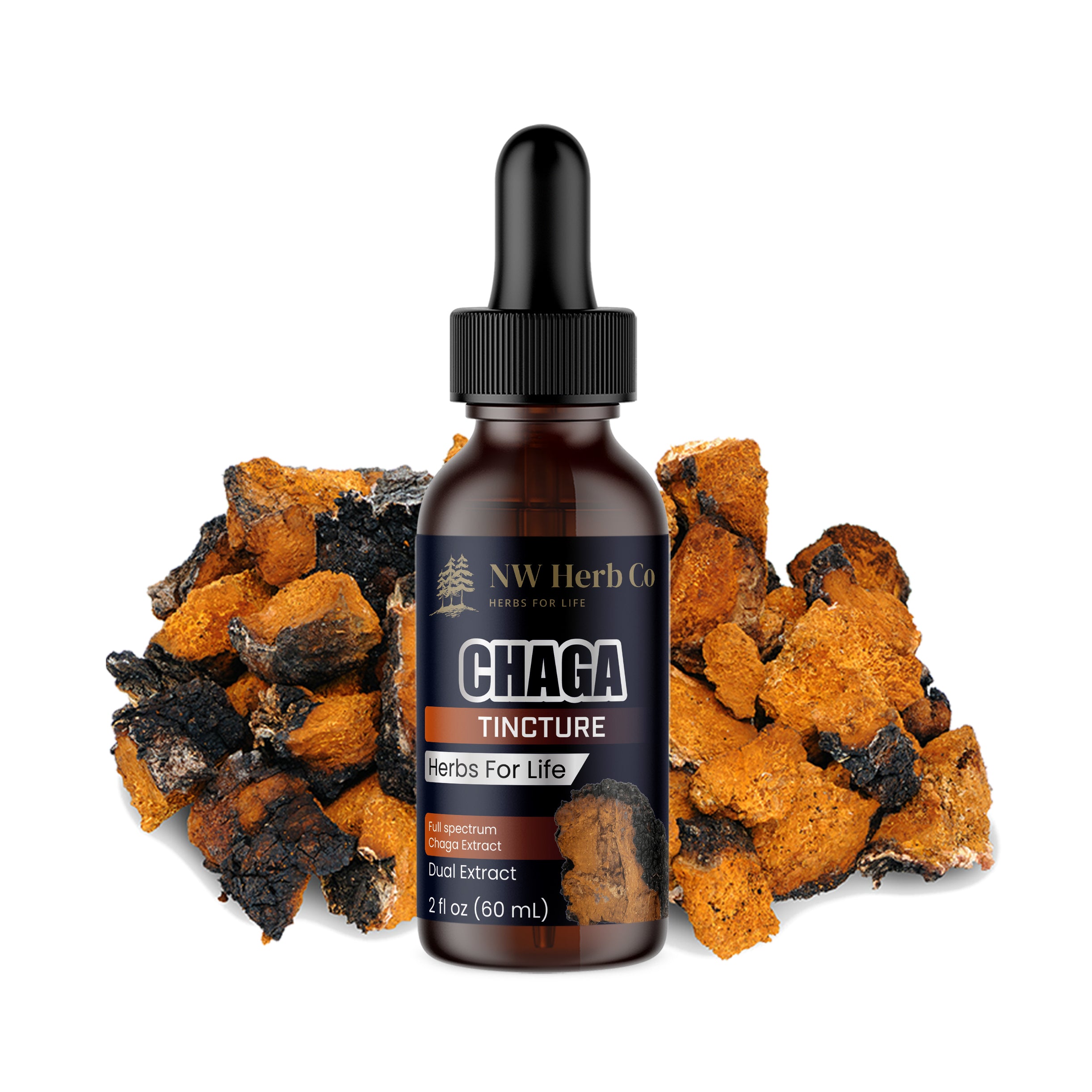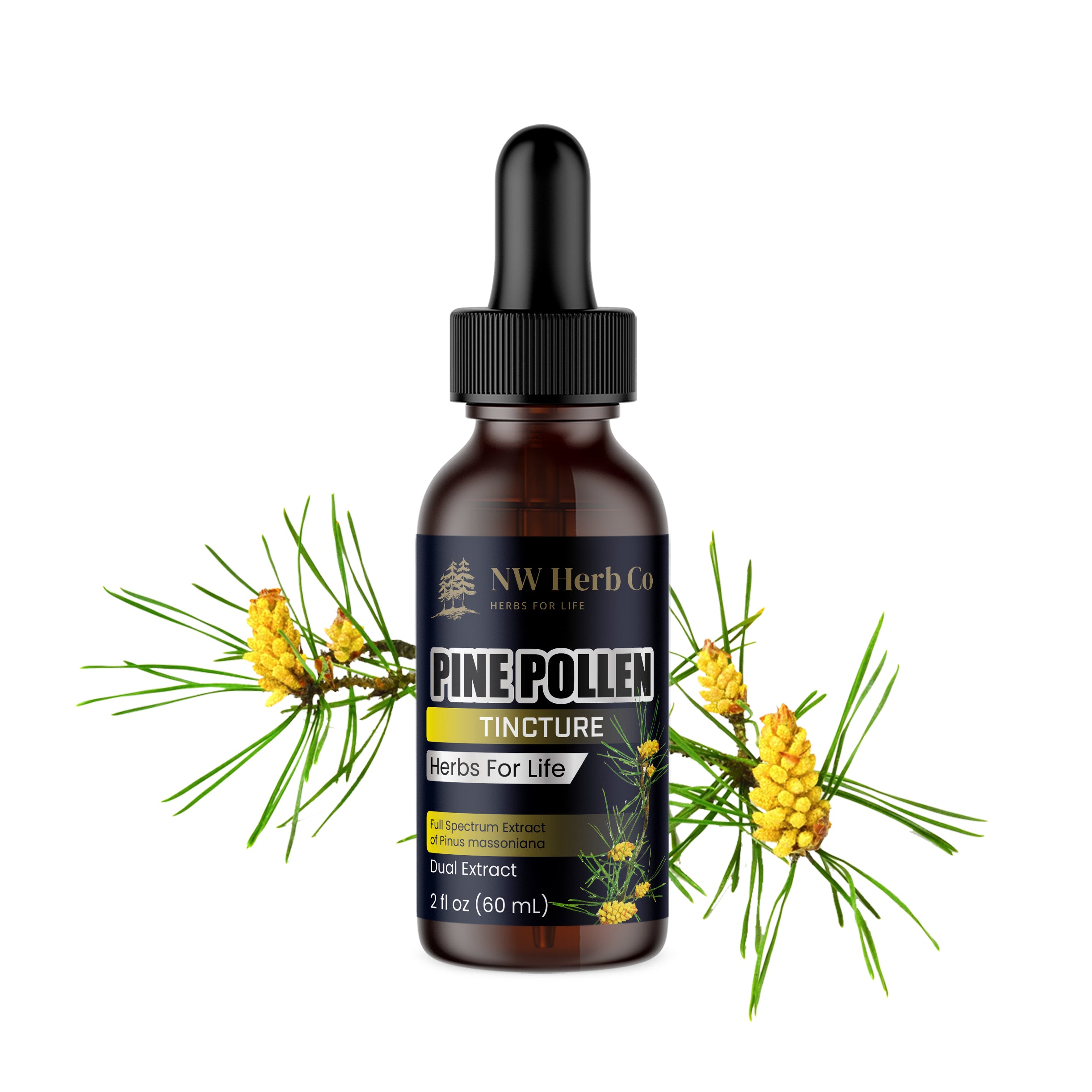Article: The Power of Chaga: Nature’s Most Potent Medicinal Mushroom

The Power of Chaga: Nature’s Most Potent Medicinal Mushroom
Chaga (Inonotus obliquus) is a fungus that grows primarily on birch trees in cold climates such as Siberia, Northern Canada, Alaska, and parts of the northern United States. For centuries, it has been revered in traditional medicine, particularly in Siberian, Russian, and Scandinavian cultures, for its incredible health benefits. Known as the "King of Mushrooms," chaga is loaded with bioactive compounds that are believed to support the immune system, combat oxidative stress, and enhance overall wellness.
In this blog post, we’ll dive into the benefits of chaga, how it’s used, and what modern science has to say about this ancient medicinal mushroom.
What is Chaga?
Chaga is not your typical mushroom. Unlike the traditional cap-and-stem fungi, chaga forms a hard, charcoal-like mass on the trunk of birch trees. While it may not look particularly appetizing, its rich composition of antioxidants, polysaccharides, and beta-glucans makes it a powerful ally for health.
Chaga has been used for centuries in Siberian and East Asian cultures as a remedy for various ailments, from digestive issues to boosting immunity. Today, it's gaining popularity around the world as a powerful adaptogen—a natural substance believed to help the body adapt to stress and maintain balance.
Key Health Benefits of Chaga
- Rich in Antioxidants
One of the most remarkable benefits of chaga is its exceptionally high antioxidant content. Antioxidants help neutralize free radicals—unstable molecules that can damage cells and contribute to aging and diseases like cancer. Chaga contains superoxide dismutase (SOD), one of the body’s most potent antioxidants. In fact, chaga has been shown to have one of the highest ORAC (Oxygen Radical Absorbance Capacity) scores of any food, meaning it can effectively combat oxidative stress in the body published in the journal Pharmaceutical Biology demonstrated that chaga extract exhibited significant antioxidant activity, helping protect cells from damage caused by free radicals.
- Immune Support
Chaga is also known for its ability to modulate the immune system, making it an excellent mushroom to support overall immune health. Its polysaccharides, specifically beta-glucans, are thought to stimulate the production of immune cells, including macrophages and natural killer (NK) cells, which help defend the body against pathogens.
According to research published in Mycobiology, chaga extract was found to enhance immune responses by increasing the activity of NK cells, which are vital in the body’s fight against viruses and tumors . This makes chaga supplement during cold and flu season or when you're looking to give your immune system an extra boost.
- Anti-Inflammatory Properties
Chronic inflammation is linked to numerous health problems, including heart disease, autoimmune disorders, and cancer. Chaga contains compounds such as betulinic acid and inotodiol, which have been shown to possess anti-inflammatory effects.
A 2017 study published in the journal Biomolecules & Therapeutics found that chaga extract significantly reduced inflammation in animal models, suggesting that it may help reduce inflammation in humans as well. This could make it vital in managing inflammatory conditions such as arthritis or digestive disorders.
- Potential Anti-Cancer Properties
Preliminary studies on chaga’s anti-cancer properties are promising, though more human trials are needed. Chaga contains various triterpenoids, including betulinic acid, which is believed to help fight cancer cells by promoting apoptosis (programmed cell death) in tumor cells.
In one study published in The Ial Journal of Medicinal Mushrooms, chaga extract was found to inhibit the growth of cancer cells in a laboratory setting . While this research is still in its early adds to a growing body of evidence suggesting that chaga may have potential as a complementary therapy for cancer patients.
- Supports Gut Health
Chaga also possesses prebiotic properties, meaning it can support the growth of beneficial bacteria in the gut. A healthy gut microbiome is essential for digestion, immune function, and even mental health. By promoting the balance of good bacteria, chaga may indirectly support everything from digestion to mood regulation.
How to Use Chaga
Chaga can be consumed in various forms, including as a tea, tincture, or powder. In traditional Siberian medicine, chaga is often brewed into a tea, offering a rich, earthy flavor with hints of vanilla.
-
Chaga Tea: Brewing chaga into a tea is one of the most common and effective ways to enjoy its benefits. Simply steep dried chaga chunks or powder in hot water for 10–15 minutes. You can drink it plain or add honey and a dash of milk for a creamier texture.
-
Tinctures: For a more concentrated dose, chaga tinctures are another option. These are easy to add to water, smoothies, or teas for a quick and potent health boost.
-
Powder: Chaga powder can be added to smoothies, soups, or even sprinkled into meals for a nutritional boost.
Is Chaga Safe?
While chaga is generally considered safe for most people, it’s always a good idea to consult with a healthcare provider before adding any new supplement to your routine—especially if you’re pregnant, nursing, or taking medications.
Chaga may have blood-thinning properties, so those on anticoagulants should use it with caution. Additionally, because chaga is rich in oxalates, people with kidney issues may want to avoid large doses.
The Bottom Line
Chaga is a powerful medicinal mushroom with a rich history of use and a growing body of scientific research supporting its health benefits. From immune support to its antioxidant and anti-inflammatory properties, this ancient fungus has earned its place in modern wellness routines.
As always, make sure to choose high-quality, sustainably sourced chaga products to get the most out of this incredible natural remedy.
References:
- Ma, L., Chen, H., Dong, P., & Lu, X. (2013). Anti-inflammatory and antioxidant activities of extracts from chaga (Inonotus obliquus). Pharmaceutical Biology, 51(5), 567–575.
- Shashkina, M. Y., Shashkin, P. N., Sergeev, A. V. (2006). Chemical and medicinal value of chaga (Inonotus obliquus). Pharmaceutical Biology, 44(1), 48–54.
- Youn, M. J., Kim, J. K., Park, S. Y., Kim, Y., Park, J. H., Kim, Y. S., ... & So, H. S. (2009). Chaga mushroom (Inonotus obliquus) induces G0/G1 cell cycle arrest and apoptosis in human hepatoma HepG2 cells. World Journal of Gastroenterology: WJG, 14(4), 511–517.
- Lee, I. K., Lee, J. H., Yun, B. S., & Han, S. (2017). Polysaccharides isolated from the medicinal mushroom Inonotus obliquus enhance the immune responses in mice. Biomolecules & Therapeutics, 25(6), 618–624.
- Mishra, S. K., Kang, J. Y., Oh, S. H., & Kim, M. K. (2013). Anti-inflammatory activity of chaga mushroom (Inonotus obliquus) extract in RAW264. 7 macrophage cells. Journal of Ethnopharmacology, 146(1), 277-285.
- Zjawiony, J. K. (2004). Biologically active compounds from aphyllophorales (polypore) fungi. Journal of Natural Products, 67(2), 300–310.

